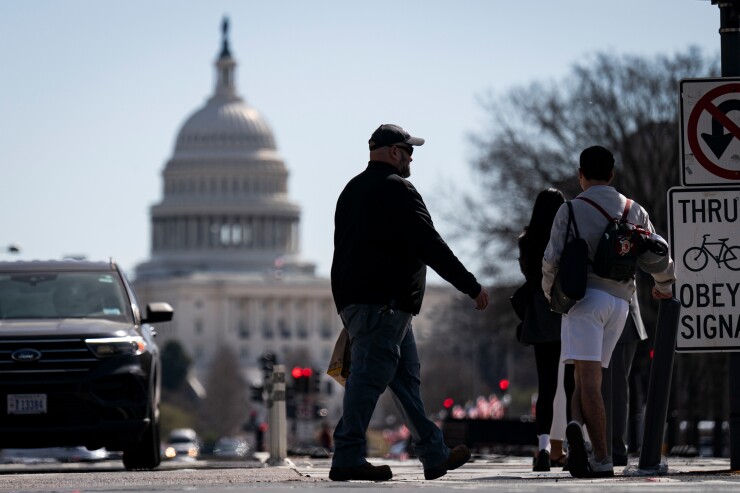Senate Republicans are coming around to the $40,000 cap on state and local tax deduction key House lawmakers demand in President Donald Trump's massive tax package, but they want to lower the income threshold.
Senator Markwayne Mullin of Oklahoma, a key negotiator, said he plans to make the offer late Monday to House Republicans from New York, New Jersey and California.
The House bill, which passed the chamber on a single vote last month, would phase down the break for those with incomes of more than $500,000 in 2025, with the income limit increasing by 1% per year as well. Mullin would not say what his proposed income limit was.
A deal would resolve a standoff between Senate GOP leaders who favored keeping the SALT cap at the current $10,000 and a group of House Republicans from high-tax swing districts who insisted on the $40,000 cap in the House-passed version of the tax bill.
Mullin said he expected neither side to be happy with the deal but expressed optimism that they could come to a consensus.
New York Republican Nick LaLota said Monday he would not budge from the $40,000 cap but signaled he would be open to adjusting the income threshold.
The SALT provision has been one of several holdups for the Trump tax bill in the Senate.
Senate Republican Leader John Thune is also trying to navigate competing demands from conservatives and moderates on social safety net cuts and the elimination of clean energy tax credits. He must resolve most of the disputes to secure the votes he needs to pass the legislation.
Agreement on the SALT provisions reduces the chances that the House will make further changes to the tax bill once it receives the measure back from the Senate. Any changes would delay the legislation because the Senate would have to take up the measure once again, including going through days of procedural steps.
Trump and Republican congressional leaders have set a goal of passing the legislation before the July 4 holiday.
Senate Republicans said Medicaid cuts to rural hospitals were now the toughest problem with the bill. At issue is a provision in the Senate bill that caps taxes states apply to Medicaid providers in order to boost their federal reimbursement rates.
Senator Josh Hawley of Missouri said that plans to create an emergency fund for hospitals lack detail and Jerry Moran of Kansas said the fund on the table appears too small.
Senate Republicans also said they are working to restore some provisions the parliamentarian decided violate the strict rules governing legislation that can pass the chamber by a simple majority.
That includes a cut to the funding for the Consumer Financial Protection Bureau and a provision requiring states to provide matching funds for food stamp benefits. Republicans also said fights over green energy tax credits remain unresolved.
Separately, Senators Ted Cruz and Mike Rounds indicated a dispute over spectrum sales has been resolved.
"We're there," Cruz said.
Rounds said he's been told his concerns over protecting Defense Department airwaves have been addressed and he's just waiting to see final language. "Trust, but verify," he said.






